Are you an expat living in a country where Arabic is widely spoken, or planning to move to one soon? If yes, then learning the Arabic language can be a game-changer for you. This blog post will guide you through 58+ basic Arabic words that every expat should know.
Not only will these words help you navigate daily life more smoothly, but they will also enrich your cultural experience. With a focus on Arabic language learning, let’s embark on this linguistic journey.
Why Learn Arabic as an Expat?
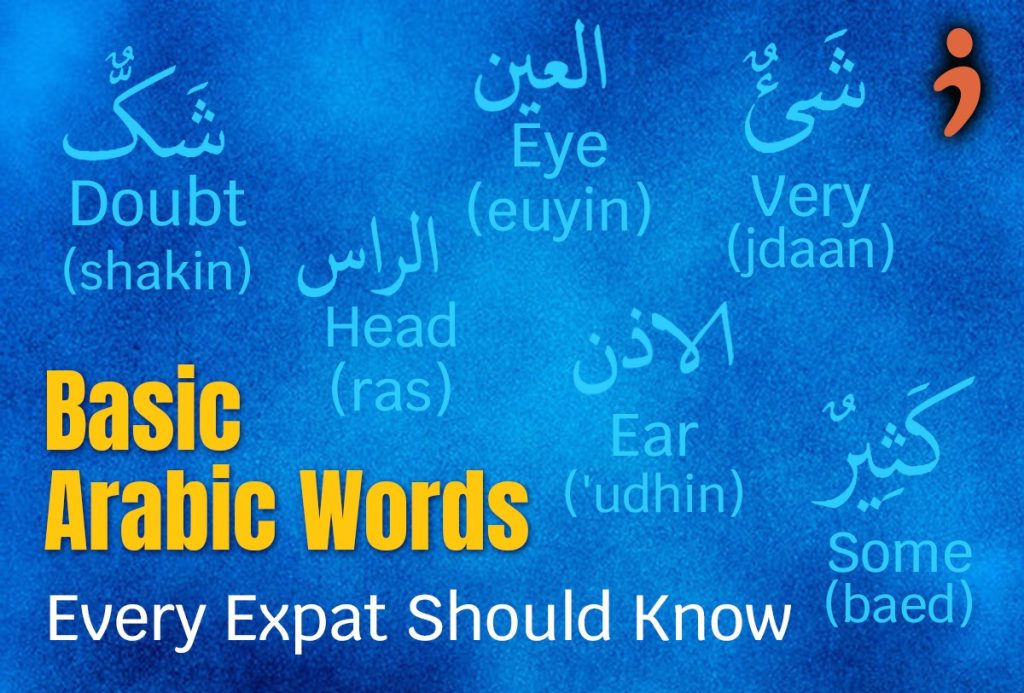
- Cultural Integration: Learning Arabic can help you better understand and appreciate the local culture. It’s a sign of respect towards the host country and can open doors to more authentic experiences. It’s particularly beneficial for those living in Arabic in UAE where the local culture is deeply rooted in the Arabic language.
- Daily Convenience: Knowing basic Arabic words can make daily life easier. From shopping and asking for directions to understanding signs and menus, a little Arabic can go a long way. Even knowing how to say Arabic for yes and Arabic for no can be incredibly helpful.
- Professional Advantage: If you’re working in a country where Arabic is spoken, understanding the language can be a professional advantage. It can help you communicate better with Arabic-speaking colleagues and clients. It’s a skill that can set you apart in the competitive job market.
- Personal Growth: Learning a new language like Arabic can be a rewarding personal achievement. It can boost your confidence and open your mind to new perspectives. It’s a journey of personal growth that goes beyond language learning.
Recommended reading: A Guide to Learning Conversational Arabic in UAE
58+ Essential Arabic Words for Daily Use
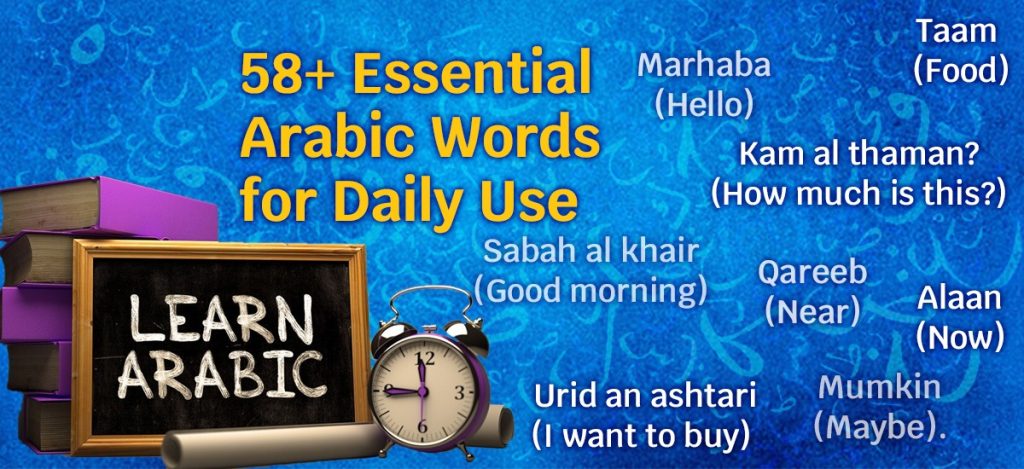
- Greetings: ‘Marhaba’ (Hello), ‘Sabah al khair’ (Good morning), ‘Masaa al khair’ (Good evening), ‘Shukran’ (Thank you), ‘Afwan’ (You’re welcome), ‘Tasbeeh al khair’ (Good night), ‘Ma’a as-salaama’ (Goodbye).
- Basic Phrases: ‘Naam’ (Yes), ‘La’ (No), ‘Min fadlak’ (Please), ‘Ma ismuk?’ (What’s your name?), ‘Tasharrafna’ (Nice to meet you), ‘Kayf halak?’ (How are you?), ‘Ana bekhair, shukran’ (I’m fine, thank you), ‘Ana asif’ (I’m sorry), ‘Mumkin’ (Maybe).
- Directions: ‘Yameen’ (Right), ‘Yasar’ (Left), ‘Amam’ (Straight), ‘Wara’ (Behind), ‘Bain’ (Between), ‘Huna’ (Here), ‘Hunak’ (There), ‘Qareeb’ (Near), ‘Baeed’ (Far).
- Shopping: ‘Kam al thaman?’ (How much is this?), ‘Hal tatakallam inglizi?’ (Do you speak English?), ‘Ayna al suq?’ (Where is the market?), ‘Urid an ashtari’ (I want to buy), ‘Hal hunaaka khass?’ (Is there a discount?), ‘Hal yamkan al dafa’ bil bitaqa?’ (Can I pay with a card?).
- Food: ‘Taam’ (Food), ‘Maa’ (Water), ‘Shay’ (Tea), ‘Qahwa’ (Coffee), ‘Halal’ (Permissible under Islamic law), ‘Laham’ (Meat), ‘Samak’ (Fish), ‘Khudar’ (Vegetables), ‘Fawakeh’ (Fruits).
- CommonObjects: ‘Kitab’ (Book), ‘Qalam’ (Pen), ‘Kursi’ (Chair), ‘Tawila’ (Table), ‘Bab’ (Door), ‘Nafidha’ (Window), ‘Sayyara’ (Car).
- Time and Numbers: ‘Alaan’ (Now), ‘Ba’dein’ (Later), ‘Qabl’ (Before), ‘Ba’d’ (After), ‘Wahid’ (One), ‘Itnayn’ (Two), ‘Thalatha’ (Three), ‘Arbaa’ (Four), ‘Khamsa’ (Five).
Recommended reading: Why should you learn a new language?
Tips for Learning and Practising Arabic
- Use Flashcards: Write the Arabic words on one side of a flashcard and their English translations on the other. Review these flashcards regularly to reinforce your Arabic language learning.
- Practice Daily: Try to use the new words you learn in your daily conversations. The more you use them, the better you’ll remember them. This is especially true for phrases like Arabic for yes and Arabic for no.
- Watch Arabic Shows: Watching Arabic TV shows or listening to Arabic music can help you get used to the sounds and rhythms of the language. This is a fun and entertaining way to enhance your Arabic language learning.
- Join a Language Exchange: Find a language exchange partner who’s learning your native language. You can help each other practice and learn. This can be particularly beneficial if you’re learning Arabic in UAE as you’ll have plenty of opportunities to practise.
- Use Language Learning Apps: There are many apps available that can help you learn Arabic. They offer lessons, quizzes, and other resources to make learning fun and effective.
Taking Your Arabic to the Next Level
- Consider a Language Course: If you want to go beyond basic words and phrases, consider enrolling in an Arabic language course. These courses can help you learn grammar, improve your pronunciation, and expand your vocabulary.
- Practice with Native Speakers: Try to practise speaking Arabic with native speakers. They can correct your mistakes and help you learn more natural ways of expressing yourself.
- Immerse Yourself in the Language: Try to read Arabic newspapers, watch Arabic movies, and listen to Arabic songs. This can help you pick up new words and phrases and understand the context in which they’re used.
- Use Language Learning Tools: There are many online tools and resources available that can help you learn Arabic. These include language learning apps, online courses, and language exchange platforms.
- Stay Consistent: Consistency is key when learning a new language. Try to set aside some time every day to practise Arabic.
Conclusion
Learning Arabic as an expat can be a rewarding and enriching experience. It can help you integrate into the local culture, navigate daily life more easily, and even provide professional advantages.
The 58 basic Arabic words and phrases provided in this blog post are a great starting point. Remember, the key to language learning is practice and consistency. So, start using these words in your daily life and take the first step towards mastering the Arabic language.
FAQs on Basic Arabic words
-
Is Arabic a difficult language to learn?
While Arabic is different from English and other Latin-based languages, with regular practice and the right resources, you can learn it effectively.
-
How long does it take to learn basic Arabic?
The time it takes to learn basic Arabic can vary depending on your learning method, the amount of time you dedicate to learning, and your language learning background.
-
Can I learn Arabic by myself?
Yes, with the right resources and dedication, you can learn Arabic by yourself. However, joining a language course or having a tutor can speed up the process.
-
What is the best way to learn Arabic?
The best way to learn Arabic depends on your personal learning style. Some people prefer language courses, while others find self-study methods more effective.
-
Why should I learn Arabic?
Learning Arabic can offer numerous benefits, from enhancing your travel experience in Arabic-speaking countries to providing professional advantages in certain fields.
Ready to take your Arabic language learning to the next level? Check out the range of Arabic language classes available on Pursueit. Whether you’re a beginner or looking to improve your skills, you’ll find a class that suits your needs. Start your Arabic language learning journey today!

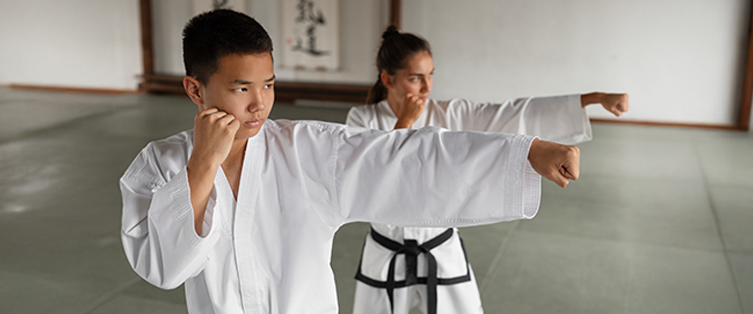


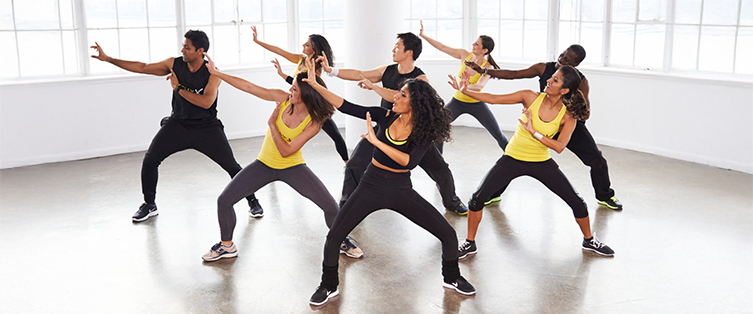
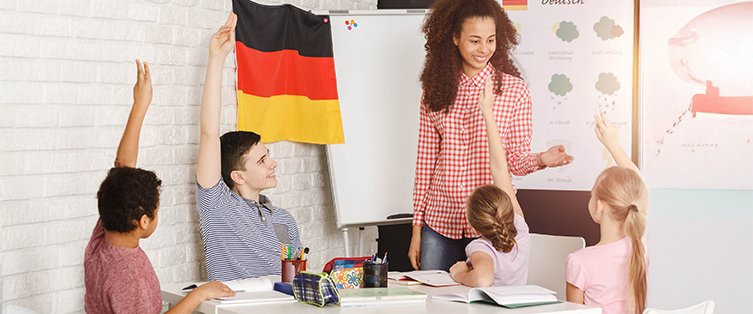

Leave a Reply